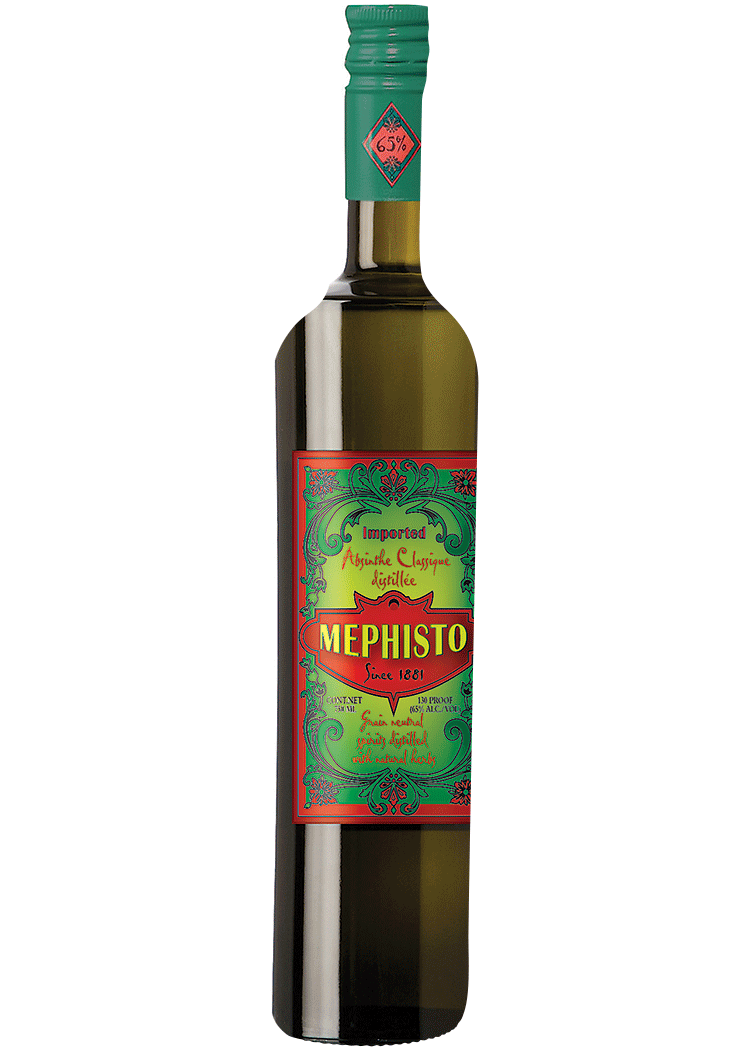tap to enlarge
Mephisto Absinthe
50ml
$4.49
+CRV
*Price, vintage and availability may vary by store.
*Price, vintage and availability may vary by store.
Product Highlights
Austria- Distilled based on an original 1909 recipe, Mephisto Absinthe includes grand wormwood, sage and fennel, along with other natural herbs. When added to water and ice its louche-effect creates a wonderful opal green cloudiness.
ComplexHerbal
Product Details
OVERVIEW
Producer Story
Mephisto Absinthe is crafted according to a 1909 recipe by the Friedrich Fischer family-run distillery in Vienna, Austria. Once banned from production, this fashionable-again spirit is made from hard mountain spring water, pure grain spirits and a traditional blend of absinthe flavorings including anise, fennel and wormwood. The ethereal pale green hue of Mephisto Absinthe comes exclusively from its recipe’s herbal and floral ingredients.
Category
Cordials offer a delicious burst of flavor and sweetness. Offering endless possibilities, cordials are spirits combined with botanicals or other flavoring agents, as well as a sweetener and sometimes coloring. They’re ideal for sipping after a meal, spiking a tasty dessert and mixing into fun, colorful cocktails.
The sweetening requirement is what makes cordials distinct from dry flavored spirits such as gin. In the United States, where “cordial” and “liqueur” are used interchangeably, regulations require that they contain at least 2.5 percent sugar by weight and be made from “fruits, flowers, plants, or pure juices therefrom, or other natural flavoring materials, or with extracts” of those materials. In Europe, cordials refer to non-alcoholic drinks. We use the terms based on U.S. regulations.
The spirit base for cordials is often neutral, but it certainly doesn't have to be. A robust spirit like whiskey, for example, can mix beautifully with other flavoring agents. Common flavors include fruits ranging from stone fruit to citrus and berries to nuts, as well as coffee and chocolate and even aromatic spices and seeds. Some liqueurs include a touch of cream to round out the other tasty elements.
Regulations allow cordial producers creative license with not only the spirit and flavoring agent, but also how they’re incorporated. Some add flavoring agents after distillation by one of several methods. Infusion involves steeping the flavor source; maceration entails more aggressive crushing of the flavor components before steeping; percolation pumps water or spirits over the ingredients to extract flavors. Finally, flavor can be added by compounding, simply adding the flavoring extract to the spirit. Heartier flavoring agents such as seeds and flowers may be distilled along with the distillate, often for the second distillation, similar to the gin-making process.
Cream liqueurs require homogenization and other different mixing processes.
After producers marry flavoring agents with alcohol, they reduce the proof by adding water, which is sweetened and often colored. Sweetening agents include sugar, high-fructose corn syrup and honey. In some cases, producers use rectified grape must, a sugary, unfermented concentrated grape juice.
